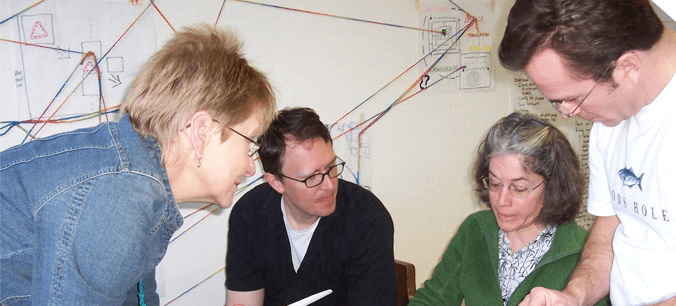Peter J. Taylor, University of Massachusetts, Boston
Denver 2015: Design and Planning
Most workshops are dysfunctional—this one wasn’t!: an evaluation from the first New England Workshop on Science & Social Change in 2004. With the aim of fostering collaboration among those who teach, study, and engage with the public about scientific developments and social change, these experimental, interaction-intensive, interdisciplinary, four-day workshops have continued annually, with additional workshops in Portugal. The evolving workshop processes have informed shorter workshops in four countries, Project-Based Learning graduate courses, month-long Collaborative Explorations for moderate-sized open online collaborative learning, and documentation of participants’ innovations in teaching and public engagement.
The exhibit = 10-30 minute experience of NewSSC tools and processes for connecting-probing-reflecting.
STS Relevance:
- workshops are ubiquitous in STS;
- organized multi-person collaborative processes form a highly valorized aspect of some scientific fields;
- explores making knowledge by doing in sense of diverse agents a mobilizing a variety of resources spanning different realms of social action.

